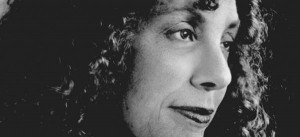Master Class
 The packet came in the mail. My first MFA workshop would be led by Lynne Sharon Schwartz. So I did what any good writing student does: I bought and read one of her books. I remember humming along through Disturbances in the Field, deeply engaged with Lydia, a Manhattan pianist who understands her life through the lessons of the great philosophers. “Heraclitus was right,” she says. “No sooner is a position established than it erodes. The solid earth under our feet melts into water, evaporates into air, and is consumed in fire. I moved from one family to another.” The mood is heady, the details exquisite. Here, I thought, is a novel unhampered by plot: a capacious, intelligent book about the endless trouble of being smart and a woman, of being with other people and alive. A book that showed me how to write sentences, and how to live a life of the mind. Twenty-three in Brooklyn, I took constant, exuberant notes.
The packet came in the mail. My first MFA workshop would be led by Lynne Sharon Schwartz. So I did what any good writing student does: I bought and read one of her books. I remember humming along through Disturbances in the Field, deeply engaged with Lydia, a Manhattan pianist who understands her life through the lessons of the great philosophers. “Heraclitus was right,” she says. “No sooner is a position established than it erodes. The solid earth under our feet melts into water, evaporates into air, and is consumed in fire. I moved from one family to another.” The mood is heady, the details exquisite. Here, I thought, is a novel unhampered by plot: a capacious, intelligent book about the endless trouble of being smart and a woman, of being with other people and alive. A book that showed me how to write sentences, and how to live a life of the mind. Twenty-three in Brooklyn, I took constant, exuberant notes.
But then, halfway through, like a guillotine, the plot falls into place. Something irreversible occurs in Lydia’s life, something devastating. And despite the book’s description, despite the many, many narrative clues, I was shocked. Suddenly, I had in my hands an entirely different book. The armor of ideas Lydia had been forging no longer fit the shape of the world; somehow, she’d have to recast it. Schwartz was even more masterful than I’d thought.
Mildly daunted, I made my way to Bennington, where I met the author herself: a small, dignified woman who clearly didn’t suffer fools. Somehow, I managed to call her Lynne. As a teacher, she turned out to be quite compatible with her book: broad-minded yet blunt, rigorous yet humane. Unsurprisingly, she’d read everything—because, as she often insisted, the only way to become a writer was to read and live and write. Like Lydia, she could always call up just the right book for any situation.
Lynne wasn’t the first writer I’d known, but she may have been the first with whom I kept up a regular correspondence. I learned recklessly from her recommendations, and from her own books, too. In her memoir of bibliophilia, Ruined By Reading, she cautions that “the writer is born of our fantasies. Reading her book, we fashion her image, which has a sort of existence, but never in the flesh of the person bearing her name.” And yet, I really did know this person, which had to count for something. We traded childhood stories, discovered a mutual affection for Daniel Deronda and Natalia Ginzburg, shared news of births and deaths. She was known as one of the bad cops at Bennington, famous for being tough on her students. Well, if this was bad, I wouldn’t waste my time with good. Read More »
The Paris Review's Blog
- The Paris Review's profile
- 305 followers



